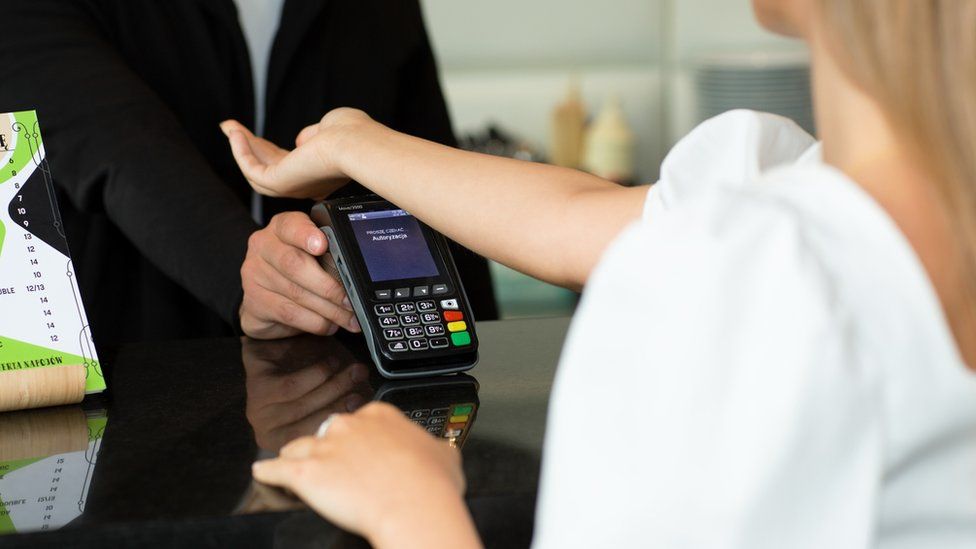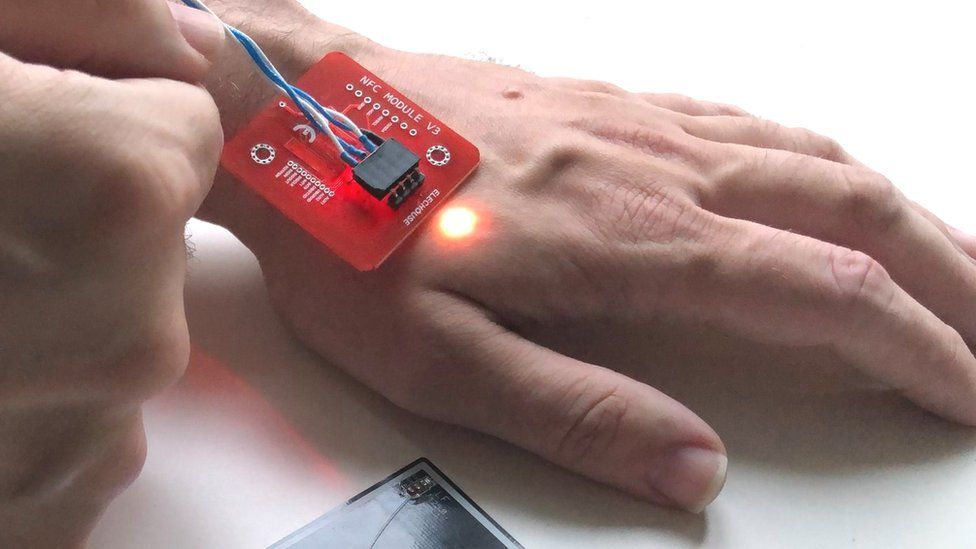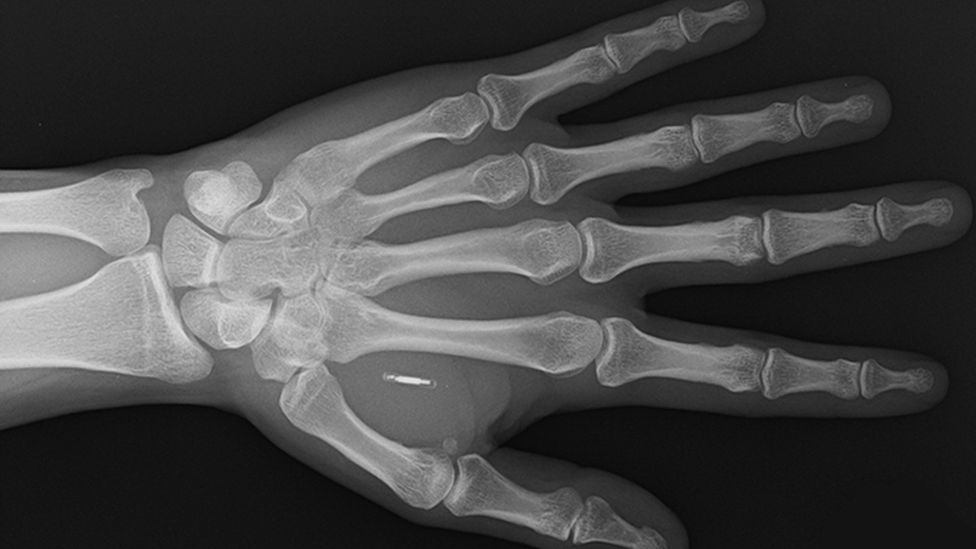Italy deploys new social credit system to control human behavior in the name of “climate change”
04/28/2022 / By Ethan HuffThe first European nation to start rewarding citizens for their “good behavior” in obedience to the state’s dictates is Italy.
Starting this fall in the city of Bologna, the government will deploy a new pilot project in which citizens who engage in “correct” behaviors such as recycling rather than trashing and using public transportation instead of their own vehicles, will be given a top social credit score, allowing them more privileges.
The Bologna municipality is launching a “Smart Citizen Wallet” that citizens can use to collect digital coins rather than paper money. Those with the highest scores will receive the highest number of coins, which can then be used for discounts at local shops.
The stated purpose of the program is to “save resources” and promote climate-friendly behavior in Italy. Throwing things away rather than recycling them warms the globe, officials say, as does using a car rather than a bus or train.
Massimo Bugani, the councilor for the digital agenda in the northern Italian city, explained to Bologna Today that the program is not mandatory. However, he does expect high voluntary user uptake (Related: The United Kingdom launched a similar program aimed at getting more people to eat “healthy”).
If the people let them, the tyrants will eventually control the entire planet digitally
Come fall of 2022, the program will be unveiled, though it will not be tied to any other programs such as online identification or social media usage. That could change in the future, though.
The National Pulse warns that the European Union has been eying a more invasive social credit scoring system similar to the one that exists in communist China.
In order to solve various “social issues,” the EU wants to enslave Europeans within a digital paradigm that restricts their movements for “bad” behavior while enhancing their movements for “good” behavior.
The state will be the ultimate determining factor as to which behaviors are which, and citizens will be expected to simply comply without question if they want to continue living with any semblance of “freedom.”
“Germany and Austria (ID Austria) have already accelerated their respective digital ID plans,” writes Wahagen Khabayan.
“Both countries are introducing new platforms to integrate more public services and IDs, digitize mail, and even national passports. These new measures have been introduced under the auspicious of solving ‘bureaucratic problems and [saving] resources.'”
European Commission President Ursula von der Leyen has repeatedly expressed interest in launching an “EU ID” program that would integrate all national IDs throughout Europe into one single platform.
“Every time an App or website asks us to create a new digital identity or to easily log via a big platform, we have no idea what happens with our data,” von der Leyen said in 2021, attempting to make the case that more Big Brother intervention is needed to protect everyone’s privacy.
“That is why the Commission will propose a secure European e-identity. One that we trust and that any citizen can use anywhere in Europe to do anything from paying taxes to renting bicycles.”
Seeing as how such a platform is capable of logging a massive amount of personal data on every single EU citizen, the privacy invasion implications of the program are astounding.
Even so, the European ID Wallet app began its testing phase in 2021 and is expected to be deployed in the fall of 2022. Where it goes after that depends on the vain imaginations of the deranged control freaks in charge, and the willingness of citizens to comply with whatever they roll out next.
Signs of the End Times
The microchip implants that let you pay with your hand
By Katherine Latham
Business reporter
 IMAGE SOURCE,PIOTR DEJNEKA
IMAGE SOURCE,PIOTR DEJNEKAPatrick Paumen causes a stir whenever he pays for something in a shop or restaurant.
This is because the 37-year-old doesn't need to use a bank card or his mobile phone to pay. Instead, he simply places his left hand near the contactless card reader, and the payment goes through.
"The reactions I get from cashiers are priceless!" says Mr Paumen, a security guard from the Netherlands.
He is able to pay using his hand because back in 2019 he had a contactless payment microchip injected under his skin.
"The procedure hurts as much as when someone pinches your skin," says Mr Paumen.
 IMAGE SOURCE,PATRICK PAUMEN
IMAGE SOURCE,PATRICK PAUMENA microchip was first implanted into a human back in 1998, but it is only during the past decade that the technology has been available commercially.
And when it comes to implantable payment chips, British-Polish firm, Walletmor, says that last year it became the first company to offer them for sale.
"The implant can be used to pay for a drink on the beach in Rio, a coffee in New York, a haircut in Paris - or at your local grocery store," says founder and chief executive Wojtek Paprota. "It can be used wherever contactless payments are accepted."
Walletmor's chip, which weighs less than a gram and is little bigger than a grain of rice, is comprised of a tiny microchip and an antenna encased in a biopolymer - a naturally sourced material, similar to plastic.
Mr Paprota adds that it is entirely safe, has regulatory approval, works immediately after being implanted, and will stay firmly in place. It also does not require a battery, or other power source. The firm says it has now sold more than 500 of the chips.
The technology Walletmor uses is near-field communication or NFC, the contactless payment system in smartphones. Other payment implants are based on radio-frequency identification (RFID), which is the similar technology typically found in physical contactless debit and credit cards.
 IMAGE SOURCE,WALLETMOR
IMAGE SOURCE,WALLETMORFor many of us, the idea of having such a chip implanted in our body is an appalling one, but a 2021 survey of more than 4,000 people across the UK and the European Union found that 51% would consider it.
However, without giving a percentage figure, the report added that "invasiveness and security issues remained a major concern" for respondents.
Mr Paumen says he doesn't have any of these worries.
"Chip implants contain the same kind of technology that people use on a daily basis," he says, "From key fobs to unlock doors, public transit cards like the London Oyster card, or bank cards with contactless payment function.
"The reading distance is limited by the small antenna coil inside the implant. The implant needs to be within the electromagnetic field of a compatible RFID [or NFC] reader. Only when there is a magnetic coupling between the reader and the transponder can the implant can be read."
He adds that he is not concerned that his whereabouts could be tracked.
"RFID chips are used in pets to identify them when they're lost," he says. "But it's not possible to locate them using an RFID chip implant - the missing pet needs to be found physically. Then the entire body gets scanned until the RFID chip implant is found and read."
Yet the issue with such chips, (and what causes concern), is whether in the future they become ever more advanced, and packed full of a person's private data. And, in turn, whether this information is secure, and if a person could indeed be tracked.
Financial technology or fintech, expert Theodora Lau, is co-author of the book Beyond Good: How Technology Is Leading A Business Driven Revolution.
She says that implanted payment chips are just "an extension of the internet of things". By that she means another new way of connecting and exchanging data.
 IMAGE SOURCE,THEODORA LAU
IMAGE SOURCE,THEODORA LAUYet, while she says that many people are open to the idea - as it would make paying for things quicker and easier - the benefit must be weighed up with the risks. Especially as and when embedded chips carry more of our personal information.
"How much are we willing to pay, for the sake of convenience?" she says. "Where do we draw the line when it comes to privacy and security? Who will be protecting the critical infrastructure, and the humans that are part of it?"

Nada Kakabadse, professor of policy, governance and ethics at Reading University's Henley Business School, is also cautious about the future of more advanced embedded chips.
"There is a dark side to the technology that has a potential for abuse," she says. "To those with no love of individual freedom, it opens up seductive new vistas for control, manipulation and oppression.
"And who owns the data? Who has access to the data? And, is it ethical to chip people like we do pets?"
The result, she cautions, could be "the disempowerment of many for the benefits of a few".
Steven Northam, senior lecturer in innovation and entrepreneurship at the University of Winchester, says that the concerns are unwarranted. In addition to his academic work he is the founder of UK firm BioTeq, which has been making implanted, contactless chips since 2017.
Its implants are aimed at people with disabilities who can use the chips to automatically open doors.
"We have daily enquiries," he says, "And have carried out over 500 implants in the UK - but Covid caused some reduction in this."
"This technology has been used in animals for years," he argues. "They are very small, inert objects. There are no risks."
 IMAGE SOURCE,PATRICK PAUMEN
IMAGE SOURCE,PATRICK PAUMENBack in the Netherlands, Mr Paumen describes himself as a "biohacker" - someone who puts pieces of technology into his body to try to improve his performance. He has 32 implants in total, including chips to open doors and imbedded magnets.
"Technology keeps evolving, so I keep collecting more," he says. "My implants augment my body. I wouldn't want to live without them," he says.
"There will always be people who don't want to modify their body. We should respect that - and they should respect us as biohackers."
The microchip implants that let you pay with your hand - BBC News

3rd temple to be built
THE THIRD TEMPLE WILL BE REBUILT IN JERUSALEM!! - YouTube
Biden Refers to Rebuiding 3rd Temple - YouTube

Italy deploys new social credit system to control human behavior in the name of “climate change”

Iran, Russia, China To Run War Drills in Latin America
300w, 703w" data-sizes="auto" />
Chinese president Xi Jinping and Russian president Vladimir Putin / Wikimedia Commons
Adam Kredo • July 5, 2022 4:55 amSHARE
Iran, Russia, and China are gearing up to run a series of major war drills in Latin America in a show of force meant to signal how these militaries can reach the United States.
Venezuela, under the leadership of anti-U.S. socialist president Nicolás Maduro, is scheduled to host the war games in mid-August, according to a report by the Center for a Secure Free Society, a think tank that tracks malign regimes. Along with 10 other nations, Russia, China, and Iran will move their militaries into the Western Hemisphere for war drills that will "preposition forward-deployed military assets in Latin America and the Caribbean."
The war games, known as the Sniper Frontier competition, show that these malign regime from across the globe are uniting and "getting ready to make a loud statement that the region is ready to embrace the multipolar force," according to the think-tank report, which focuses on Latin America's embrace of authoritarian regimes. A key portion of Russia's "military is prepping to bring, for the first time, some of these military games to the Western Hemisphere"—even as Moscow is bogged down with war in Ukraine.
The war drills are one of the starkest signs to date that Latin America's coalition of anti-U.S. regimes is working to boost relations with Russia, China, and Iran. Maduro recently wrapped up a diplomatic tour of the Middle East in which he inked a 20-year strategic deal with Iran that laid the groundwork for an Iranian oil tanker to dock in Venezuela and offload Tehran's illicit crude. "The strategic deal between Iran and Venezuela is meant to mirror similar strategic agreements that the Islamic Republic signed with China and Russia in recent years," according to the think-tank report. Latin American regimes also are inking military pacts with Russia.
"Russia and its allies Iran and China are about to make a major show of force with the army games competition in August in Venezuela. But it's important to understand that this force is molded by cyber-enabled, digital disinformation that is at the heart of how this kind of joint military exercise is used to legitimize authoritarian states and delegitimize democracies in the Western Hemisphere," Joseph Humire, a national security analyst and executive director of the think tank, told the Washington Free Beacon. "By normalizing military movements of U.S. adversaries in the Caribbean, we run the risk of weakening the moral legitimacy of democracies in Latin America."
There are also signs that Iran's Islamic Revolutionary Guards Corps (IRGC), the country's paramilitary fighting force, is boosting its presence in Latin America.
In early June, a Venezuela cargo plane flying in the region "was discovered to have members of the Qods Force, the elite unit of Iran's revolutionary guards, on board," according to the think-tank report. "Gholamreza Ghasemi, a known weapons trafficker for the IRGC and manager of Qeshm Fars Air, was piloting the Boeing 747-300M that returned to Buenos Aires along with 4 other Iranian nationals and 14 Venezuelans."
After the plane was grounded, "documents, personnel effects, and electronics were seized by Argentine authorities who discovered images of tanks, missiles, and other pro-IRGC paraphernalia on one of the mobile devices," hinting at a larger Iranian-backed plot unfolding in the region.
Ghasemi reportedly made at least 13 trips from Iran to Venezuela in the past year and a half, raising red flags with the FBI and the Israeli government.
As Iran and Venezuela increase their military and economic ties, Nicaraguan president Daniel Ortega—an ally of Venezuela's Maduro—renewed a military pact with Russia "authorizing Russian troops, planes, and ships to patrol the Central American country's borders and conduct joint military training exercises," according to the report. The military agreement was signed amid Russia's war with Ukraine, indicating that a presence in Latin America remains a priority for Moscow even as it faces pressure on its own borders.
Russia has been waging covert espionage operations in Latin America. An accused Russian GRU military intelligence agent was recently caught trying to obtain an internship at the International Criminal Court. The spy "had been cultivating his cover as a Brazilian national for years and may not have been working alone," according to the think-tank report.
China also has been active in the region, though these efforts have received little media attention.
Chinese foreign minister Wang Yi last month inked several economic deals in Latin America, making calls to Uruguay, Nicaragua, and Ecuador. China's Belt and Road Initiative, a program to increase the Chinese Communist Party's global footprint, has made its way into Argentina, where it is working to build infrastructure projects.
"As Russia attempts to delegitimize the international financial system," the think tank noted, "China has signed an agreement with a Switzerland-based bank to establish a reserve of yuan currency together with Indonesia, Malaysia, Hong Kong, Singapore, and Chile to counter the U.S. dollar."

Revelation 13:16-18 KJV
And he causeth all, both small and great, rich and poor, free and bond, to receive a mark in their right hand, or in their foreheads: And that no man might buy or sell, save he that had the mark, or the name of the beast, or the number of his name. Here is wisdom. Let him that hath understanding count the number of the beast: for it is the number of a man; and his number is Six hundred threescore and six.
89 Bible Verses about the Mark of the Beast
89 Bible Verses about the Mark of the Beast (KJV) | StillFaith.com
